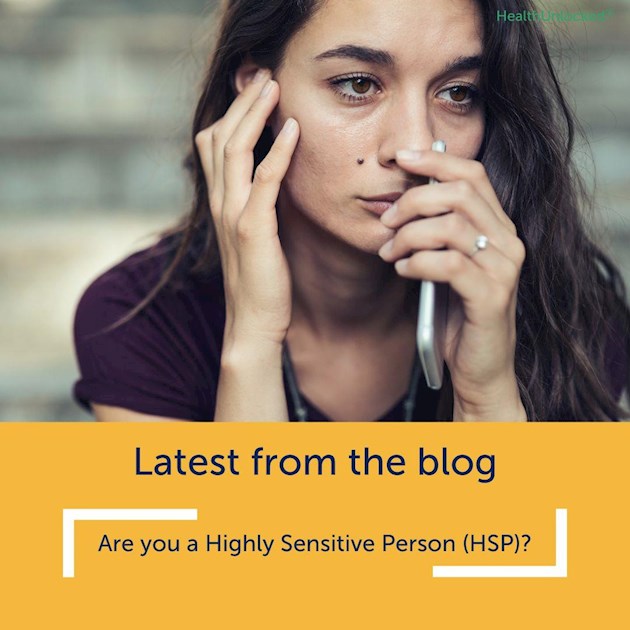Ruminate over past experiences? Easily stimulated? Maybe you feel everything deeply and have high levels of empathy for others? You could be highly sensitive. In this post, we hope that you gain a deeper understanding of what it means to be a highly sensitive person, including behavioural expressions.
-----------------------------
Dr. Elaine Aron first started her research into High Sensitivity in 1991 and her book “The Highly Sensitive Person” was first published in 1997; subsequently, it has sold almost one million copies and is available in 17 languages. Yet in 2022, High Sensitivity still seems “under the radar”, particularly in the UK. More recent research in 2018 suggests that the original estimate of 1:5 of the population being Highly Sensitive is somewhat conservative.
So what is High Sensitivity?
Those who are Highly Sensitive have a highly developed nervous system, which displays in a number of ways. It’s a trait just like other aspects that you have been born with. You don’t need to seek treatment and you won’t find a “cure”. It’s normal to be Highly Sensitive. Scientifically known as Sensory Processing Sensitivity (SPS) and is also present in many species of animals.
Dr. Aron’s acronym best sums up the key aspects of High Sensitivity:
DOES stands for Depth of Processing, Over-arousability, Emotional Intensity, and Sensory Sensitivity.
Depth of Processing is about deep thoughts and feelings, or contemplation, both of oneself and the world in general. Perhaps you take your time reflecting, possibly to the point of rumination; it could be about you, your immediate family, your career, climate emergency, animal welfare, war.
You are likely to have a highly artistic and creative aspect to you, coupled with conscientiousness; this would be offset against an awareness of failure and any consequences.
Overarousability can manifest in many ways and will be a result of too much stimulation. You might be more sensitive to caffeine, alcohol, and other drugs, both prescribed and recreational; glaring or fluorescent lights, much preferring total darkness for sleeping; noise, especially sudden, strong smells, “itchy” fabrics; too many people for the space you are in; pressure of tight deadlines such as at work or an exam. You may adapt your behaviour to reduce these common stimuli and take more time out alone to compensate.
Emotional Intensity will show in deeper, stronger, longer emotions both positive and negative; praise and criticism will affect you more. You will have a high level of empathy, possibly showing from a relatively early age, coupled with intuition and ability to be aware of others’ emotions. So you might be able to “read” others and be affected by their good/bad mood. You are not likely to enjoy watching violent films and TV programmes.
Sensory Sensitivity there is some overlap with some aspects of overarousability; would you notice whether I’ve changed a picture in my therapy room, from one wall to another, between sessions, for example?
-----------------------------
Written by David Wilson
David Wilson is a therapist in London.
You can contact him here: welldoing.org/therapist-list
-----------------------------
Sometimes it helps talking through your situation with someone else, in person or online. There are hundreds of friendly, supportive communities on HealthUnlocked, where you can go to get peer-support and connect with people who truly understand what you’re going through. Start here: healthunlocked.com/communities

 . I truly believe this describes me
. I truly believe this describes me  . Friends, and even strangers I have met have always told me I was uniquely different in a good way
. Friends, and even strangers I have met have always told me I was uniquely different in a good way  . I am very sensitive to caffeine, alcohol, and even someone outdoors smoking cigarettes, legal drugs, or illegal drugs from their second hand smoke
. I am very sensitive to caffeine, alcohol, and even someone outdoors smoking cigarettes, legal drugs, or illegal drugs from their second hand smoke